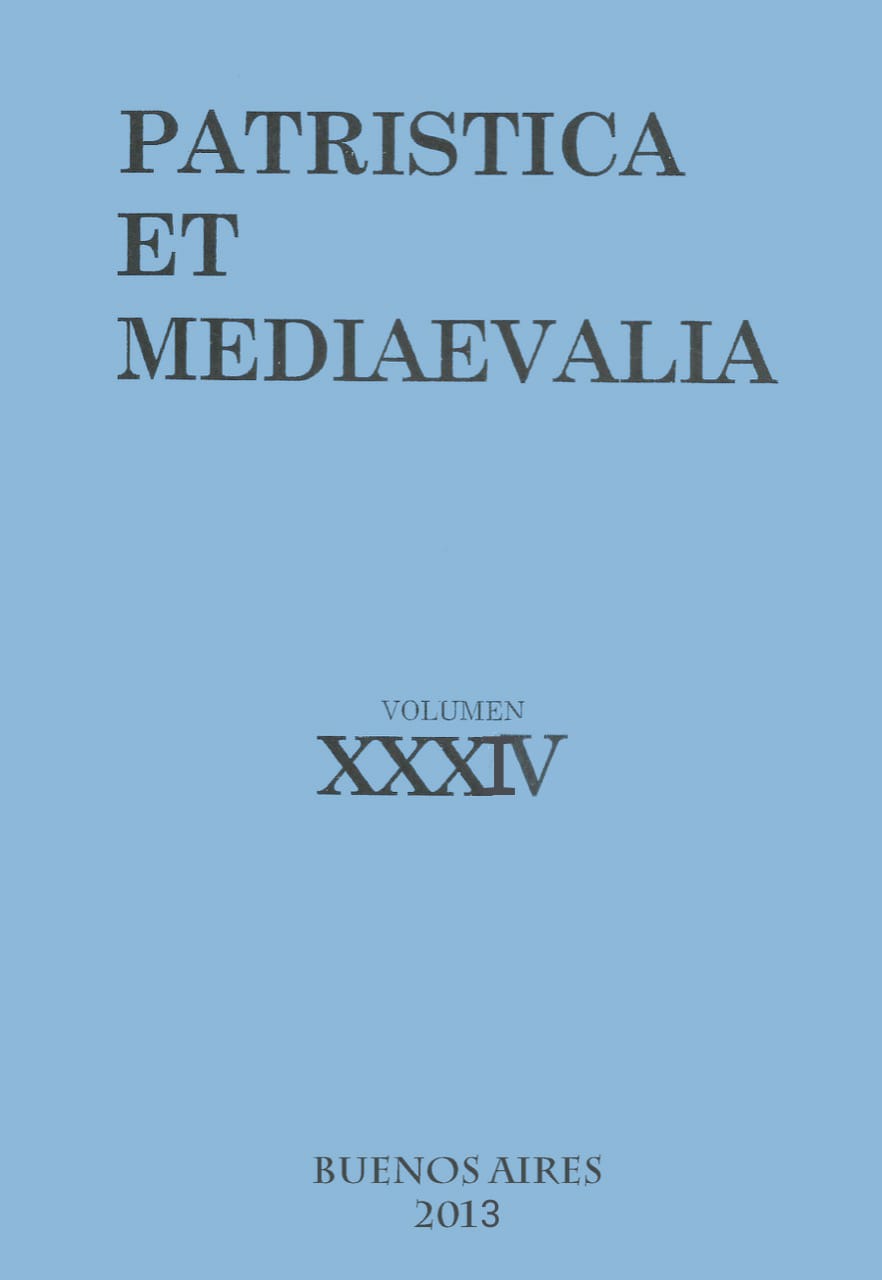The "First Notions" of Avicenna as Source of the Doctrine of the Transcendentals in Thomas Aquinas
Abstract
The doctrine of transcendentals in the Middle Ages implies that there are certain concepts primarily conceived by the intellect and common to all things. Avicena is one of the major sources of this doctrine and his influence in Thomas Aquinas' conceptualization of the doctrine is decisive. To show this influence, in the present paper we establish a few theses from the epistemological, logical and ontological point of view that are implied in a doctrine of first concepts. Then we discuss Aertsen's position, according to which there is not any doctrine of transcendentals in Avicenna, due to the lack of a conceptual relation among the primary notions. Our aim is to espouse the same position as Aertsen but because of different reasons.Downloads
References
Aersten, J. (2003). La Filosofía Medieval y los Trascendentales. Traducción al español M. Aguirre y M. I. Zorroza Navarra: EUNSA.
Aersten, J. (2008). Avicenna's Doctrine of The Primary Notions and Its Impact on Medieval Philosophy. En: Akasoy, A. & Raven, W. (eds.). Islamic Thought in the Middle Ages: Studies in Text, Transmission and Translation in Honour of Hans Daiber (Islamic Philosophy, Theology and Science). Leiden: Brill, 21-42.
Aersten, J. (2012). Medieval Philosophy as Trascendental Thought. Leiden/Boston/Köln: Brill.
Pini, G. (2002). Categories and Logic un Duns Scotus. An Interpretation of Aristotle’s Categories in the Late Thirteenth Century. Leiden/Boston/Köln: Brill.
Marmura, M. E. (2004). Avicenna on Primary Concepts in the Metaphysics of his al-Shifa. En: Marmura, M. E. Probing in Islamic Philosophy: Studies In The Philosophies Of Ibn Sina, Al-Ghazali, and Other Majar Muslim Thinkers. Binghamton: Global Academic Publishing.
Novella, V. (2007). Le Propietá Trascendentali dell’essere nel XIII Secolo. Genesi e significati della doctrina. Padova: Il Poligrafo.
Storck, A. (2005). As noções primitivas da metafísica segundo o Liber de Philosophia Prima de Avicena. Analytica, 9(2), 13-41.
Ventimiglia, G. (1997). Differenza e contraddizione. Il problema dell'essere ín Tommaso d'Aquino: esse, diversum, contradictio. Milano: Vita e pensiero.
Wippel, J. (1995). The Latin Avicenna as a Source of Thomas Aquinas’s Metaphysics. En Wippel, J. Metaphysical Themes in Thomas Aquinas II. Washington DC: The Catholic University of America Press, 31-64.
1. The authors who publish in this magazine accept the following conditions:
-
They retain the copyright and grant to the magazine the right of the first publication, with the work registered under the Attribution-ShareAlike 4.0 International License that allows third parties to use what is published as long as they mention the authorship of the work and the first publication in this magazine.
-
They can make other independent and additional contractual agreements for the non-exclusive distribution of the version of the article published in this magazine (eg. include it in an institutional repository or publish it in a book) provided that they clearly indicate that the work was first published in this journal.
-
They are allowed and recommended to publish their work on the Internet (for example on institutional or personal pages).
2. AutoArchive Conditions. Authors are allowed and encouraged to distribute post-print electronic versions of their manuscripts because it promotes their circulation, a possible increase of quotation and a major reach among the Academic community. Color RoMEO: blue.













